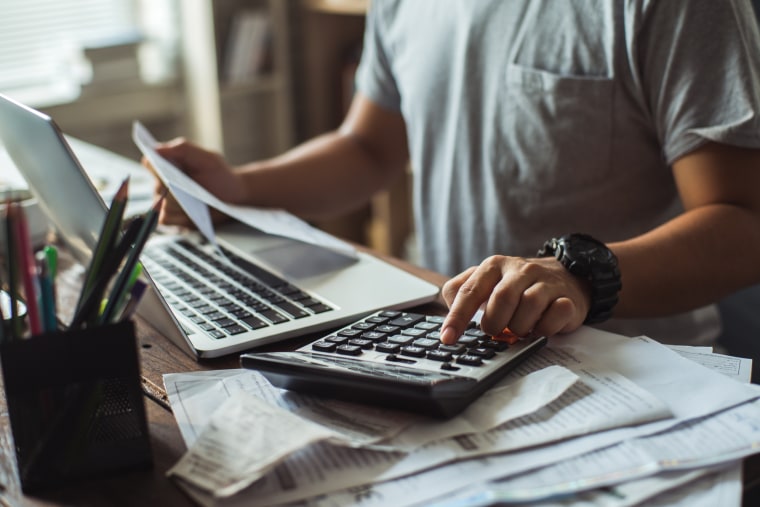We are all getting back to the basics.
While it might feel good to bake bread, the best way to get through the coronavirus pandemic could be to stock your emergency fund and learn to “do-it-yourself” with household chores so you can save on expenses.
One bright spot: You might have more time on your hands.
Think optimistically. You can learn to DIY, sock away cash and set a disaster budget for tough times.
If you’ve been putting off thinking about money, now’s the time to dedicate those extra hours in the week — no more commuting, no more rushed work mornings — to shoring up your finances.
Be a bean counter
Hold off on panicking by looking ahead, says Sasha Hutchison, 38, an accounting manager and personal finance blogger in Austin, Texas.
Take a look at your net worth: what you owe, what you can do to bring in cash now. “It helps you to feel more in control,” Hutchison said.
When Hutchison says to look at everything, she means everything. A health savings account or a flexible spending account through your job can help pay for health care. How much cash do you have on hand? What’s in your portfolio, even if it’s shrinking? It might be a difficult time to collect from anyone who owes you money — but still good to know that it’s out there.
Cash-back credit cards can be another source. Groceries and gas help accumulate points quickly. (Hutchison pays off the balance each month.)
Cash cushion

An emergency fund is more critical than ever. In one week in March, things changed almost daily, says Liz Gendreau, 39, who blogs about family finance on her website, Chief Mom Officer.
“You might get reduced hours, a pay cut,” said Gendreau, who lives in Hartford County, Connecticut. “Before that happens, ideally, is the time to take a really close look at your budget.”
You’ll never regret having emergency savings — only not saving while you had the chance.
When things go back to the way they were, you can use that pile of cash to pay off debt or for something you wanted to do.
A budget for slim times
Got a budget? That’s great. Now might be a very good time to create and use the emergency version.
According to Heather Albrecht, 37, a financial coach in Hartford, Vermont, it’s best to make this plan before you need it. It’s so much easier when you don’t look for things to cut under duress. Write it down, so you can pull it out and see the plan you’ve made.
What small luxuries do you want to keep? What you can live without? The more you cut, the longer you can make savings last.
“Be ruthless,” Albrecht said. “You can always add in things if you feel you can’t live without them.”
Hello, DIY
Many people outsource practically everything, from housecleaning to yard work to delivery services, says Tara Koup, 43, a writer for QVC who lives in Paoli, Pennsylvania.
Koup says these practical skills are a top way to save.
In the pre-Covid-19 world, people turned to pros because they were busy and pressured.
But more time at home means less of an excuse to avoid learning to cook, clean, conserve, reuse.
“I use what is around me for free instead of purchasing,” Koup said. “Living simply is a good way to save money in the long run.”
Disclosure: Invest in You: Ready. Set. Grow. is a financial wellness and education initiative from CNBC and Acorns, the micro-investing app. NBCUniversal and Comcast Ventures are investors in Acorns.


